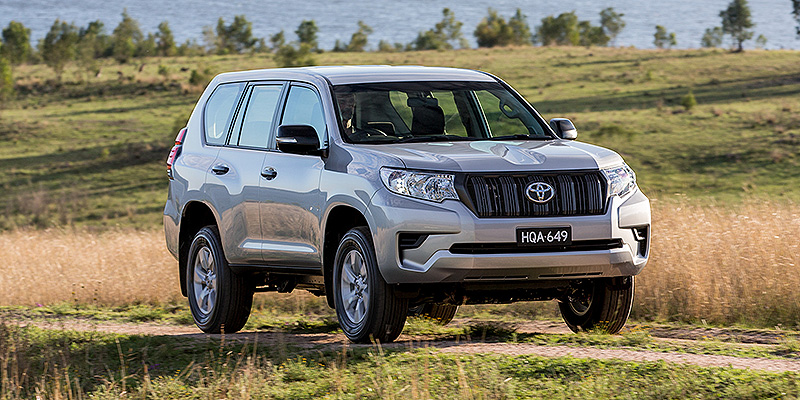The survey results from Roy Morgan showed that of the 2.26 million Australians who intend to buy a new vehicle in the next four years, a substantial number predict their next car will not be fuelled by petrol.
Roy Morgan said that petrol-fuelled vehicles had 75.3 per cent of the Australian new-vehicle market in 2017, but only 61.9 per cent of the buyers intending to purchase a car in the next four years nominated petrol.
With the demise in popularity of petrol, the bias has moved to diesel which has attracted 5.3 per cent more survey respondents than Roy Morgan’s 2017 survey results.
Diesel is now in the minds of 29.2 per cent of future buyers, 5.3 per cent up on 2017; while interest in a hybrid vehicles is up 4.7 per cent to 5.2 per cent of buyers; full-electric (EV) is up 3.0 per cent to 3.1 per cent; and – a surprise given there are now no OEM autogas cars – LPG which has 0.6 per cent more buyer interest, now appealing to 0.6 per cent of future buyers.
The Roy Morgan findings of a resurgence in diesel purchase intention is at odds with actual sales over the past 14 months in which private diesel sales plunged 20.8 per cent during 2017, while business sales of diesels dropped 6.6 per cent.
It is also at odds with trends in Europe where German courts last month ruled that cities have the right to ban diesel vehicles – primarily to improve increasingly poor air quality – which affects 12 million diesel vehicles.
It followed announcements by the city councils of Paris, Athens, Madrid and Mexico City in December 2016 that they would move to ban the diesels by 2025. The list has since been joined by Oslo and Rome, and the two most polluted German cities, Stuttgart and Dusseldorf.
In Australia, GoAutoNews Premium asked Glass’s Guide for its view on the resale prices of diesel cars in Australia.
Glass’s national marketing and sales manager, Nick Adamidis, said the situation in Europe was very different to Australia.
“Anecdotally, we only saw a small impact on diesel models compared with their petrol equivalent,” he said.
“We have only seen a two-to-three per cent fall in residual values of diesel cars since the worst of ‘dieselgate’ (2015). This is not, of course, the case in Europe.”
Sales of diesel cars and SUVs in Europe fell eight per cent in 2017 to 43.7 per cent of the vehicle market – the lowest in eight years.
This is very worrying for OEMs that are desperate to do anything to keep diesels engines in their vehicle mix in the near term because only diesels can meet the stringent EU carbon emission requirements – now 130 grams per kilometre of CO2 as a fleet.
This imperative to meet the regulations has led researchers Frost & Sullivan to predict “no drastic reduction in diesel in the next couple of years but a steady decline”.
Frost & Sullivan principal consultant Pietro Boggia is predicting that diesel sales will fall two to three percentage points in 2018.
Global automotive forecaster LMC Automotive expects diesel’s market share in 2018 to be just under 42 per cent, a decline of three percentage points.
“The automakers will need to push diesel sales until 2020 to meet their CO2 targets. The curve is flattening a little bit,” said LMC’s director of global powertrain research, Al Bedwell.
In Australia in 2017, private passenger-car diesel sales fell 20.8 per cent, largely on the back of the Volkswagen Group diesel emissions scandal that ruffled buyer trust, but also as OEMs refined petrol engines to close the fuel consumption advantage of diesel engines.
Non-private passenger-car diesel sales were down 6.6 per cent while private diesel SUV sales fell 8.3 per cent and non-private diesel sales slid only 0.8 per cent.
In commercial vehicles, private diesel sales increased by 6.5 per cent in 2017 compared with 2016, while sales to business customers increased by 14.2 per cent.
Electric vehicles (EVs) and hybrids showed large increases in the same periods, but especially this year.
In year-to-date data to the end of February 2018, private EV sales jumped 21.4 per cent and hybrid sales leapt 42.2 per cent.
It was the same trend in the non-private sector for EVs, which rose a whopping 77.4 per cent, although volume remains low, while hybrids in the non-private sector turned down 12.7 per cent; attributed to fleets fulfilling hybrid demands earlier in the financial year.
By Neil Dowling















 Read More: Related articles
Read More: Related articles

